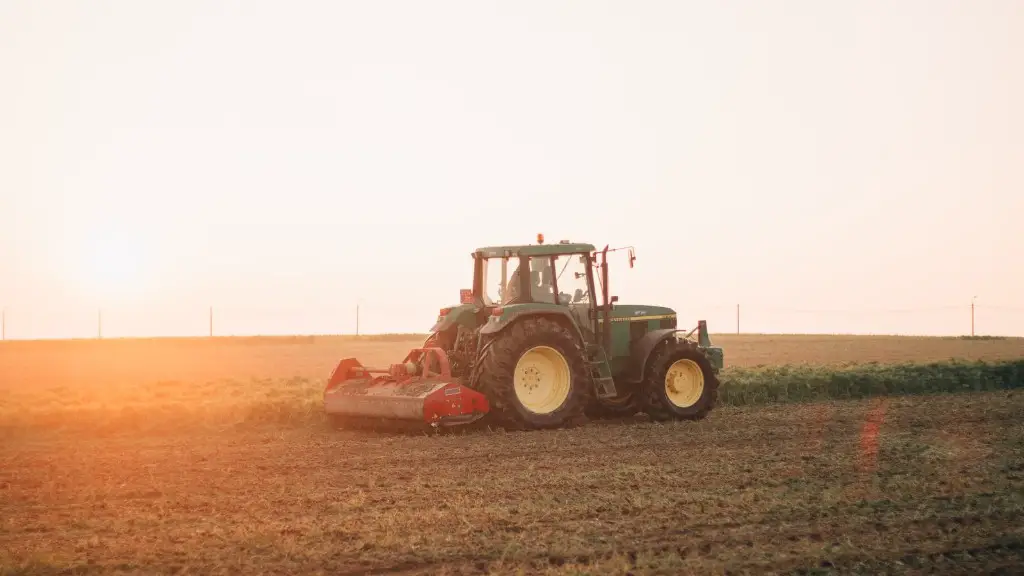The use of antibiotics in agriculture has become a contentious issue in recent years. There are those who argue that the routine use of antibiotics in farm animals is leading to the development of antibiotic-resistant bacteria, which could have serious implications for human health. Others contend that the benefits of using antibiotics in agriculture, such as preventing disease and promoting growth, outweigh the risks.
Antibiotics are used in agriculture to help prevent and treat disease in animals. Antibiotics can also be used to help promote growth in animals.
What are 2 different reasons that they use antibiotics on farms?
Antibiotics are important in food animal production to treat and prevent disease, and to improve growth. While there are concerns about the development of antibiotic resistance, judicious use of antibiotics can help to mitigate this risk.
The history of agricultural antibiotics begins with the synthetic sulphonamides. In 1935, German pharmaceutical manufacturer Bayer marketed Prontosil (sulfochrysoidine). Prontosil was the first effective drug against Gram-positive infections and a commercial success (Lesch, 2007).
Which antibiotic used in agriculture
Antibiotics have been used since the 1950s to control certain bacterial diseases of high-value fruit, vegetable, and ornamental plants. Today, the antibiotics most commonly used on plants are oxytetracycline and streptomycin. Oxytetracycline is effective against a wide range of bacteria, including Pseudomonas, Erwinia, and Xanthomonas species, which are common plant pathogens. Streptomycin is effective against a narrower range of bacteria, but is particularly effective against Erwinia species.
The practice of using antibiotics to prevent bacterial diseases in flocks and herds is still allowed in the United States, even though the World Health Organization has called on countries to end this practice in order to prevent the emergence of antibiotic resistance. While US meat producers are no longer allowed to use antibiotics to promote animal growth, they can still use them to prevent bacterial diseases. This is a concern because the overuse of antibiotics can lead to the development of antibiotic-resistant bacteria, which can be a serious threat to human health.
What are the benefits of antibiotics in livestock?
There are a few reasons why farmers use antibiotics in livestock production. First, antibiotics are used to prevent, treat and control bacterial infections in livestock. Just like humans, animals can contract infections, such as pneumonia. Antibiotics are used to humanely and economically treat and prevent these diseases. In addition, antibiotics are used to help livestock gain weight. By preventing and treating infections, farmers can help their animals grow and thrive.
The WHO strongly recommends an overall reduction in the use of all classes of medically important antibiotics in food-producing animals, including complete restriction of these antibiotics for growth promotion and disease prevention without diagnosis.
Why do antibiotics make cows bigger?
Antibiotics can help animals grow more efficiently by inhibiting the growth of microbes in the gastrointestinal tract. This can trigger immune responses in the host, which can help the animal grow more quickly.
The use of antibiotics in food animals can have an impact on people. Food animals can carry bacteria, such as Salmonella and Campylobacter, that can make people ill when they consume contaminated food. When animals are given antibiotics, the resistant bacteria in their intestines can continue to survive and grow. These resistant bacteria can then be transmitted to people, making it more difficult to treat infections.
How does the use of antibiotics in agriculture impact human health
Antibiotics are commonly used in animals in order to prevent and treat infections. However, this practice may result in the transmission of drug-resistant bacteria to humans. These bacteria can cause infections that are difficult to treat, and may even be deadly. The transfer of resistance genes from agricultural bacteria to human pathogens can also contribute to the development of antibiotic-resistant infections in humans. Therefore, it is important to be aware of the risks associated with the use of antibiotics in animals, and to take steps to minimize these risks.
The overuse of antibiotics in livestock is a major contributor to the development of antibiotic resistance. When animals are given antibiotics, they can develop resistance to the drugs, which can then be passed on to humans. antibiotic resistance is a major global health concern, and the overuse of antibiotics in livestock is a major contributing factor.
Why do farmers medicate their livestock with antibiotics?
Antibiotics play an important role in keeping farm animals healthy and preventing bacteria from entering the food supply. Responsible use of antibiotics can help reduce the overall amount of bacteria in the environment and make food safe for consumption.
There are a few pros of taking antibiotics. Firstly, they can slow the growth of many types of infection. Secondly, in some cases they can prevent infection from occurring. Thirdly, they are fast-acting, with some beginning to work within a few hours. Finally, they are easy to take, with most being oral medications.
What is the downside of using antibiotics in farming
The use of antibiotics on the farm most definitely poses a risk to human health. Antibiotic use can promote the creation of superbugs which can contaminate meat and poultry and cause hard-to-cure disease in people. Superbugs can also exit the farm via farm workers, wind, runoff, and wildlife.
Why don t cows need antibiotics?
The Food and Drug Administration has banned some uses of antibiotics in animals in order to prevent the spread of antibiotic resistance. Farmers can no longer use antibiotics to make cattle grow faster, but they can still give them to treat or prevent diseases like liver abscesses.
Yes, it’s true! Cows can get infections just like people, and they need to be treated with antibiotics. The main difference is that cows are treated with antibiotics in their feed, while people are treated with antibiotics through injections or pills.
Final Words
The main reason that antibiotics are used in agriculture is to prevent and control disease in animals. Antibiotics can be used to treat sick animals, but they are also used as a preventative measure to keep animals from getting sick in the first place. When used in this way, antibiotics are typically given to animals in their feed or water.
The use of antibiotics in agriculture is a controversial topic. Some people believe that the use of antibiotics in agriculture is a necessary part of producing food, while others believe that the use of antibiotics in agriculture is a leading cause of antibiotic resistance.




